11 Effective Home Remedies for Fever in Babies

Is your baby battling a fever, and you don’t know what to do? We understand how worrisome it can be for any parent to deal with a fever in babies. While it’s crucial to consult a healthcare professional for proper diagnosis and treatment, there are some home remedies that can help bring the temperature down and alleviate the discomfort associated with fever in babies. In this article, we’ll explore some safe and natural ways to soothe your baby during a fever episode. While these home remedies for fever in infants can provide relief, they should not replace professional medical advice when necessary. So, when you feel these are not working, consulting your little munchkin’s paediatrician is recommended.
Easy Home Remedies for Fever in Infants
Use these simple home remedies to relieve your baby’s discomfort.
1. Breastfeed
Breastfeeding is not only a source of nourishment but also a means of comfort for a feverish baby. It boosts the immune system and helps your baby stay hydrated.
2. Water Compress
Place a damp washcloth on your baby’s forehead while she’s asleep. This is one of the best home remedies for high fever in babies. Doing this reduces your child’s body temperature and lessens discomfort.
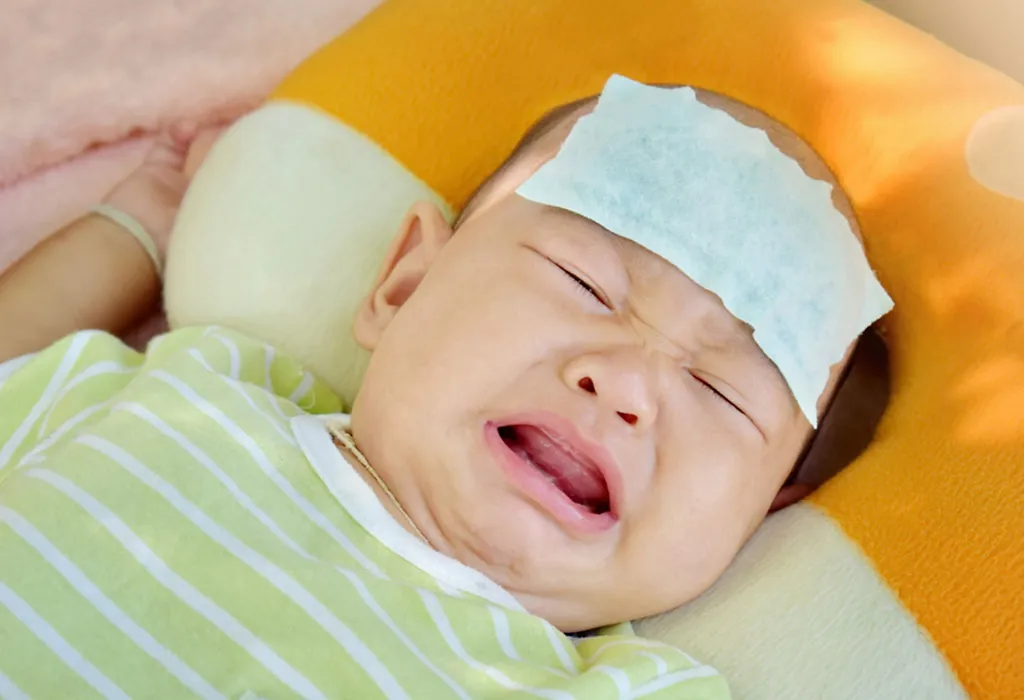
3. Sponge or Lukewarm Bath
Give your baby a gentle, lukewarm bath in a tub or sponge her with lukewarm water. Using a washcloth, gently sponge the water over your little one’s body. This method will temporarily reduce the temperature as the water evaporates off her body. Don’t bathe her in room-temperature water. This can cause a rapid and drastic temperature change and aggravate the fever. Remember not to leave your child unattended in the bathtub or bathroom for any reason.
4. Fluid Intake
Give your infant plenty of fluids when she’s suffering from a fever. Offer breast milk or formula frequently. In case your baby is on solids, you can provide extra liquid, like water, diluted 100% fruit juices, or popsicles. Proper hydration helps the body recover faster. In case they are vomiting, you can also give your baby an oral rehydration solution such as Pedialyte. The electrolyte solution contains water and salts meant to replenish fluids and electrolytes in the baby’s body.
5. Pick Suitable Clothing
If your child is wearing multiple layers of clothing, take off a few and let her skin breathe. Dress her in breathable fabrics like cotton and turn on the fan if required. Avoid overbundling, as this can trap heat and worsen the fever. For babies under 1, you can dress them in a wearable blanket. Do not put a loose blanket over them, but for babies above 1, you can cover them with a sheet or light blanket while they sleep.
6. Comforting Foods
When in fever, babies do not like to eat much. Offer easily digestible, soothing food to your baby in small amounts, and do not force them to eat as this may aggravate their stress. If your little ball of wonder is less than 6 months old, continue feeding her breast milk. Breast milk has antibodies that boost the immune system. If she has transitioned to solids, mashed, plain rice, applesauce, or banana puree can be gentle on her tummy and provide essential nutrients.
7. Keep the Room Slightly Cool
Keep your little princess’s room slightly cool so she does not get overheated. If the room feels too stuffy, turn on the fan on low or medium.
8. Rest
Make sure your little one gets plenty of rest and does not get overworked. Create a calming environment, play soothing music, and dim the lights in the room to help your baby rest and recuperate.
9. Be Aware
Keep a close check on your baby when she has a fever, especially at night, as fever tends to increase with the night. Keep them away from visitors and unhealthy people as they are vulnerable and could contract diseases more easily in this vulnerable state. Look for signs such as dehydration, dry mouth, lethargy, sunken eyes, or inactivity, and consult a doctor if you feel they need medical advice.
10. Gentle Massage
A gentle massage with baby-safe oil is one of the popular Indian home remedies that can help relax your baby and reduce discomfort. Use gentle, circular motions on the back and chest.
11. Use a Humidifier
Using a humidifier in your baby’s room can help add moisture to the air, which eases congestion and makes breathing more comfortable. It is important to use a clean and disinfected humidifier and clean water to prevent mould and bacteria buildup.
Some Additional Tips
There are a lot of misconceptions when it comes to fever in kids. Here are some important points you need to remember while trying to manage your baby’s fever.
- Fever is a natural response of the body’s defence against infection. This fighting back by the body causes inflammation and a rise in temperature, which is what we observe as “fever”. You may find that several older infants develop high fevers with even minor illnesses.
- A normal body temperature for a baby is around 97-100.3°F (36-37.9°C). Fever is generally defined as a temperature of 100.4°F (38°C) or higher. Not all fevers are harmful, some are harmless caused by mild infections.
- If your baby is displaying sluggishness, lethargy, vomiting, diarrhoea, improper feeding etc., accompanying the high temperature, then you will need to visit your doctor.
- Do not resort to self-medicating your baby without consulting a paediatrician. Ibuprofen is unsafe for children below the age of 6 months of age, while aspirin is totally unsafe for children, and a doctor’s consultation must be done before giving a baby any medicine or syrup.
- Consult your paediatrician about the dosage of OTC medicines. Milder medicines, made specifically for babies, are available these days. Acetaminophen is the safest type of anti-inflammatory medication for infants.
- Avoid using mercury-filled thermometers, as they are a health hazard to you and your kids.
- Before using any thermometer on your baby, clean it with a disinfectant or alcohol and rinse in cool water.
- Do not delay in reporting fever in a newborn that is higher than 100.4°F (38°C) (taken rectally) to the doctor.
- It is better to place the thermometer underarm.
FAQs
1. How Long Does Fever in Babies Last?
Most viral fevers range between 101° and 104° F (38.4° and 40° C) and do not last long. They wear off in two to three days. However, if the symptoms do not subside or worsen even after medication and home treatment, you must not delay in visiting a doctor.
2. Will Fever in Baby Go Away on Its Way?
Usually, a fever goes away on its own in 2-3 days. There is perhaps no deal of worry if your little one has a fever but is responsive, like playing, eating, making eye contact with you, and responding to your voice and facial expressions. Remember to maintain the hygiene around them as well as you and in your home.
As a parent, it can be worrisome to see your child battling a fever. We hope the above-mentioned home remedies for high fever in babies can help reduce the temperature and bring them relief. But, still, if your baby’s fever refuses to subside, take him to your trusted paediatrician at the earliest.
References/Resources:
1. Fever; Nationwide Children’s Hospital; https://www.nationwidechildrens.org/conditions/fever
2. Treating Your Child’s Fever; America Academy of Pediatrics; https://www.healthychildren.org/English/health-issues/conditions/fever/Pages/Medications-Used-to-Treat-Fever.aspx
3. Fever in Children; Stanford Medicine; https://www.stanfordchildrens.org/en/topic/default?id=fever-in-children-90-P02512
4. Sparks. D; Home Remedies: Fighting a fever; Mayo Clinic; https://newsnetwork.mayoclinic.org/discussion/home-remedies-fighting-a-fever/; July 2017
5. When your baby or infant has a fever; MedlinePlus; https://medlineplus.gov/ency/patientinstructions/000319.htm
6. Fever treatment at home; NCT; https://www.nct.org.uk/baby-toddler/your-babys-health/common-illnesses/fever-treatment-home
7. Fever (0-12 Months); Seattle Children’s Hospital; https://www.seattlechildrens.org/conditions/a-z/fever-0-12-months/
Also Read:
Home Remedies for Colic in Babies
Natural Remedies for Acid Reflux in Babies
Home Remedies for Cold and Cough in Infants
Best Home Remedies for Sore Throat in Babies
Was This Article Helpful?
Parenting is a huge responsibility, for you as a caregiver, but also for us as a parenting content platform. We understand that and take our responsibility of creating credible content seriously. FirstCry Parenting articles are written and published only after extensive research using factually sound references to deliver quality content that is accurate, validated by experts, and completely reliable. To understand how we go about creating content that is credible, read our editorial policy here.







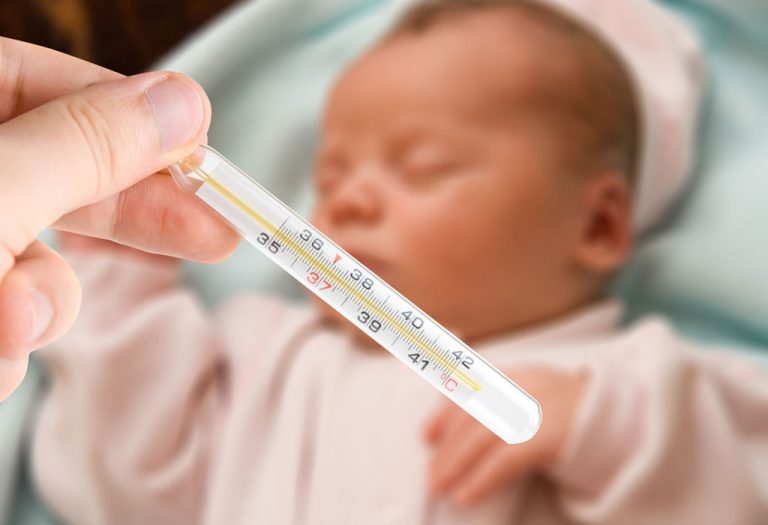
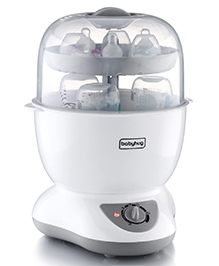

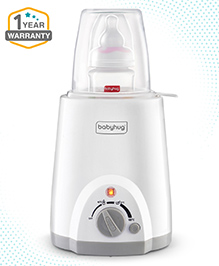
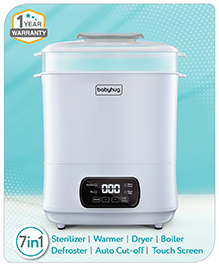
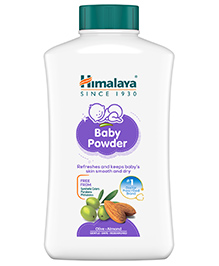

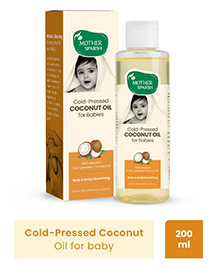
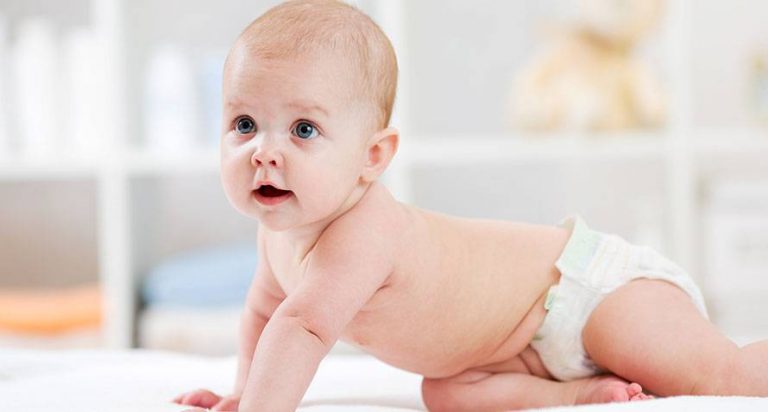
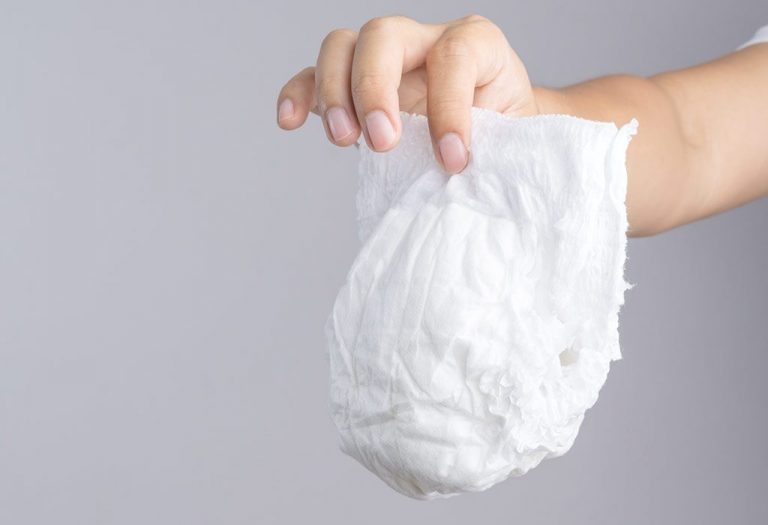

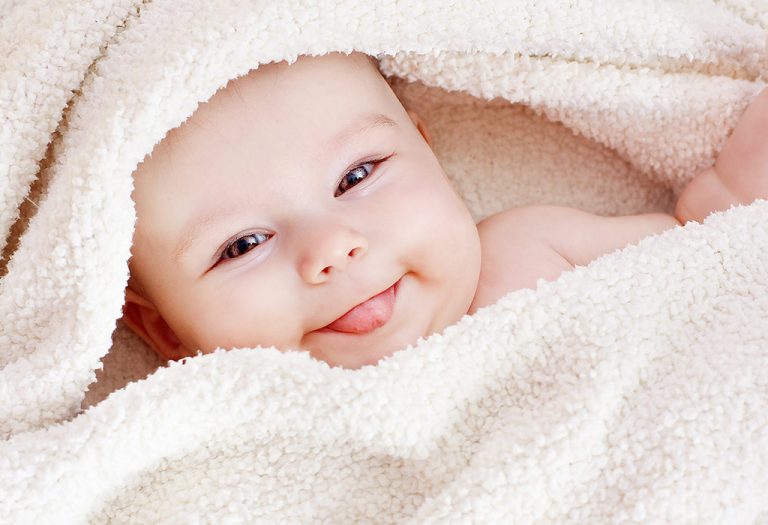
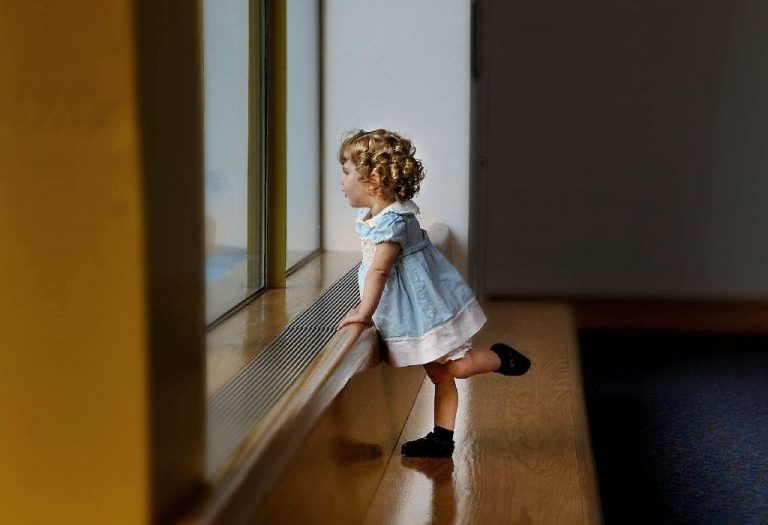


.svg)


















